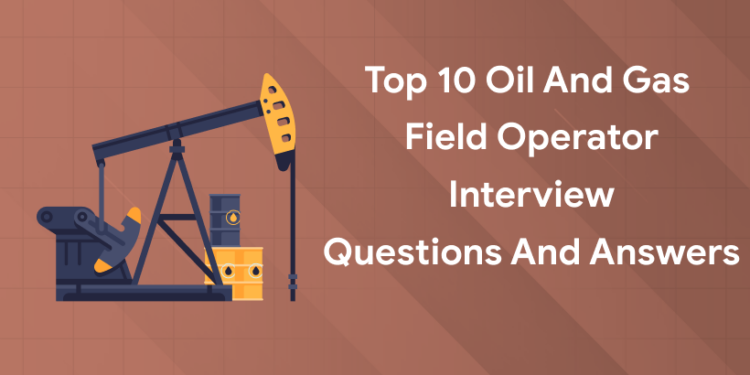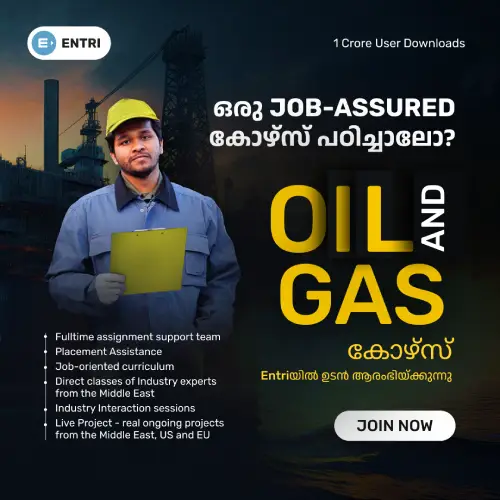Great interview ahead! You worked hard on your application, now it’s time to impress at the oil and gas interview. This industry is different. It’s a big deal, powering economies and shaping the world. They find oil and gas, then make it usable. The interview will be tough. They want to know you’re more than just good at interviewing. They need someone who understands oil and gas, can solve problems, and knows what’s happening in the industry. But don’t worry! We’ve got you covered. Keep reading for the top 10 oil and gas field operator interview questions, and how to answer them like a pro. We’ll cover everything, from safety to following the rules. So, whether you want to work for a giant oil company, a service provider, or a small startup, we’ll help you land the job you want. Let’s do this!
Join our Oil and Gas Course! Get Free Demo!
Top 10 Oil and Gas Field Operator Interview Questions and Answers
Q1. What is the procedure at a well site for separating water, gas, and oil?
Ans: Give an explanation of your understanding of the fundamentals of separation, citing separators and how they separate water, gas, and oil using pressure or gravity. Demonstrate a desire to learn more about the particular tools and procedures the business uses.
Q2. What safety measures need to be followed when working near pressured machinery?
Ans: Point out how important it is to wear the appropriate PPE (personal protective equipment) and keep a safe distance from pressurized equipment. Also, discuss your awareness of lockout/tagout protocols.
Q3. Tell me about a situation in which you had to recognize and resolve a problem at work.
Ans: Explain an narrative of a time you overcame a challenge using the STAR technique (Situation, Task, Action, Result). Pay attention to how you recognized the problem, took the initiative to resolve it, and came up with a workable solution.
Q4. How would you respond if you discovered a pipeline leak?
Ans: The first thing to emphasize is safety. Describe how you would behave according to corporate policy by notifying the supervisor right away, securing the location, and using the appropriate emergency response protocols.
Q5. What is your approach to working overtime or in bad weather?
Ans: Show that you’re prepared to put in a lot of effort and adjust to demanding circumstances. If appropriate, talk about your past experiences working outside or in physically demanding occupations.
Q6. What are a few of the most recent developments in the oil and gas sector? (For instance, environmental laws and renewable energy)
Ans: Provide evidence of a rudimentary understanding of industry trends. Give a brief overview of any environmental laws or renewable energy sources you’ve come across. Express interest in finding out more about the company’s unique strategy for addressing these problems.
Q7. Could you describe the various kinds of reserves of gas and oil?
Ans: Proved, probable, and possible are the three main categories of oil and gas reserves. Evidence of reserves has a strong chance of being recovered given the state of technology and the economy. Possible reserves are very uncertain and have a low likelihood of recoverability, whereas probable reserves have a lower possibility of being recovered. In addition, unconventional deposits like tight oil and shale gas require sophisticated drilling and extraction methods to be extracted.
Q8. What do you believe to be the main issues now affecting the oil and gas sector?
Ans: The oil and gas sector is now facing a number of difficulties. One of the most significant is the move away from fossil fuels and toward renewable energy sources. Because businesses must make significant investments in renewable energy technology to be competitive, this development has an influence on the industry’s growth and profitability. The growing number of industry laws aimed at lessening the environmental effect of gas and oil provide another difficulty. In addition, the industry is subject to market volatility brought on by shifts in oil prices and geopolitical unrest.
Join Our Oil and Gas Course! Get Placement Assistance!
Q9. Could you describe the oil and gas industry’s production and exploration process?
Ans: There are several steps in this procedure. The first is exploration, which involves drilling test wells, seismic imaging, and geological studies to find possible oil and gas deposits. Drilling of vertical, directional, or horizontal production wells marks the start of production in the event that exploration is successful. The process of extracting gas and oil from the wells using specialized machinery like compressors, separators, and pumps comes next. After extraction, the oil and gas are transported to refineries or distribution networks via pipelines, trucks, or tankers. In order to guarantee safe and effective operations, wells must be monitored and maintained as part of the production process.
Q10. What kind of equipment experience do you have with producing oil and gas?
Ans: I have worked with a wide range of oil and gas production equipment throughout the course of my career, including separators, pumps, compressors, drilling rigs, and valves. I keep up with new advancements and modifications to equipment or methods, and I am knowledgeable about the most recent industry standards and safety precautions. In my prior positions, I handled a variety of tools, from simple to sophisticated, and I was able to pick up new skills and adjust to new processes with ease.
The bottom line is that being well-versed in your subject matter is not enough to ace an interview for a position as an oil and gas field operator. It’s about showing that you have the know-how, intelligence, and a firm grasp of current events in the field.
You must be prepared for the types of questions they will ask you in order to do that. But don’t worry about it! Just consider your practical experience, your loyalty to safety, and your desire to learn new things.
Thus, be yourself at the interview, share your knowledge, and point out your suitability for the position. You’ve got this!










